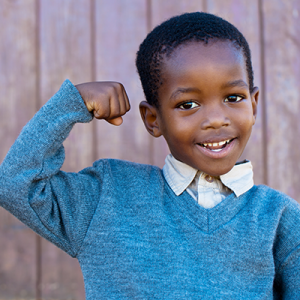Corona contact measures in the nph children’s village “Casa Santa Rosa de Lima”
On March 16, 2020, when the big ‘lockdown’ began in Germany, Peru also closed its borders and imposed far-reaching measures to contain the corona pandemic. Schools had been closed a few days before; since March 16th, people have only been allowed to leave their homes for shopping and other essential things. There were less than 20 confirmed cases of Covid-19 in the country at that time, but now, two months later, there are over 80,000 and the severe measures have been extended several more times.
As early as March 17th, Edwin Vallecillo, the head of nph’s international medical team, sent an email to all nph facilities, urging them to understand the need to implement measures which severely restrict all of them, but which are urgently needed to protect the children entrusted to us. On the same day, the nph children’s village Casa Santa Rosa de Lima in Cañete (Peru) closed its doors. For the 100 children in the village, this meant that they can no longer leave the village grounds and that the family groups of the various houses were no longer allowed to meet. Meals were also no longer had in the large dining room. Instead, the food was brought to the individual houses. Fortunately, the grounds of the children’s village are extensive, so that the children can still exercise outside, even if only in small groups.
For the ‘Tías’ and ‘Tíos’, as the caregivers are called there, it is especially hard: instead of their normal 5 day rhythm of work, it is now 15 days, so that contact of the children’s village with the outside world can be kept to a minimum. Tías and Tíos do everything they can to make it easier for the children to keep holding up. Many of the children in the village have health problems; therefore the highest goal is to prevent the occurrence of infection within the community. The few people who are still allowed to enter the children’s village from outside, such as suppliers, are therefore isolated and do not come into contact with the children.
More than a fifth of the population in Peru is poor and suffers especially from the restrictions. Many have had no income for weeks and are dependent on the solidarity of their fellow citizens. The nph children’s village also experiences solidarity: food donations, among others from the local parishes and from companies help to ensure that everyone has enough to eat despite the scarcity of funds. Unfortunately, Peru places third in Latin America regarding the number of infections, and the peak of the first pandemic wave may not have been reached yet despite the drastic measures that have been taken. The children and their caregivers in Casa Santa Rosa de Lima, and in the nph children’s villages in eight other Latin American countries are therefore facing difficult times. Food prices have already risen dramatically in many countries, and there is also a need for medication and medical protective clothing so that the necessary protective measures can be taken when the first suspected cases occur in the children’s village. Therefore, we – the whole international nph family – are very grateful for the support of our donors and supporters who will not abandon our children in these extremely difficult times.
Pictures: © nph Kinderhilfe



